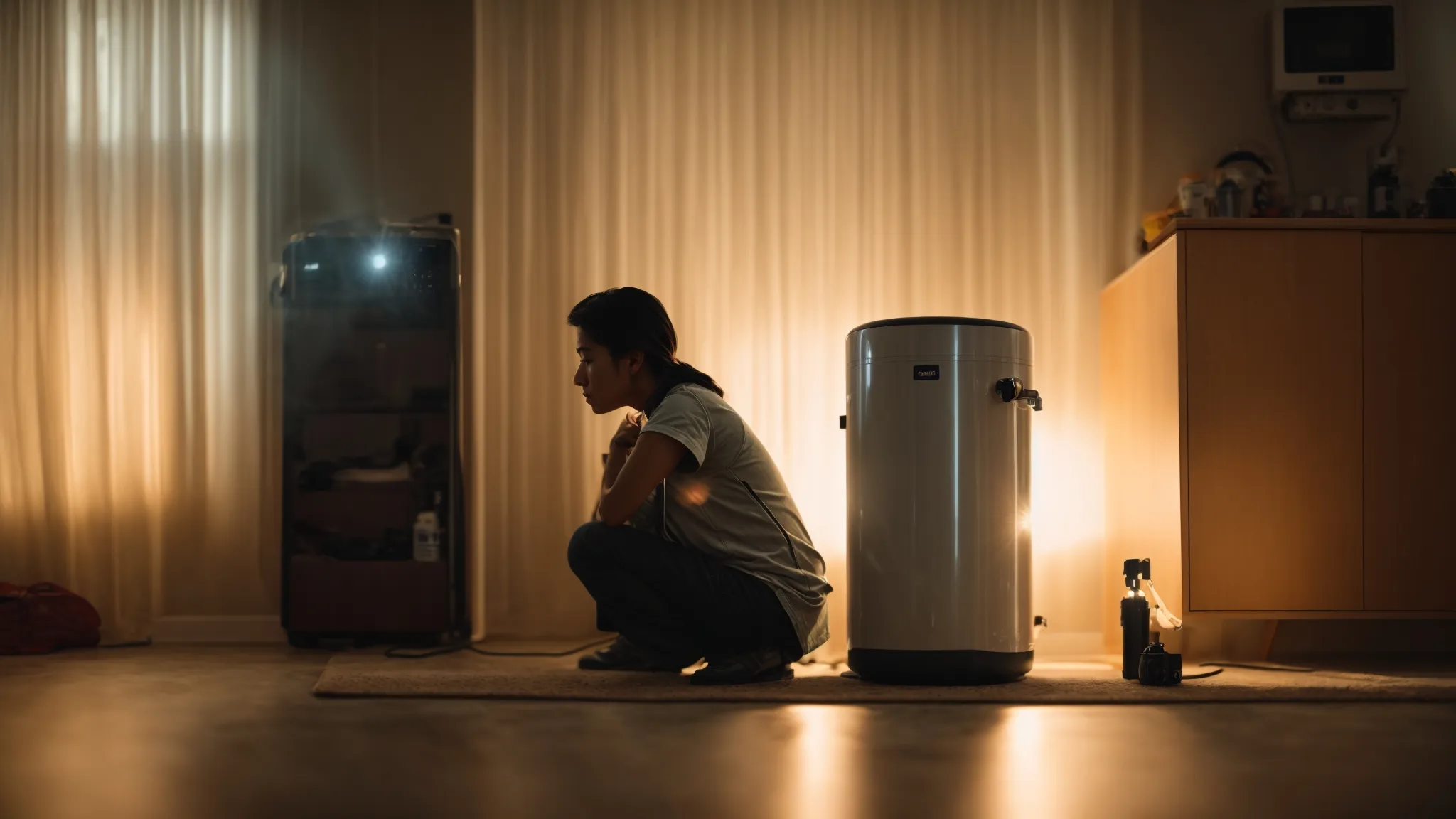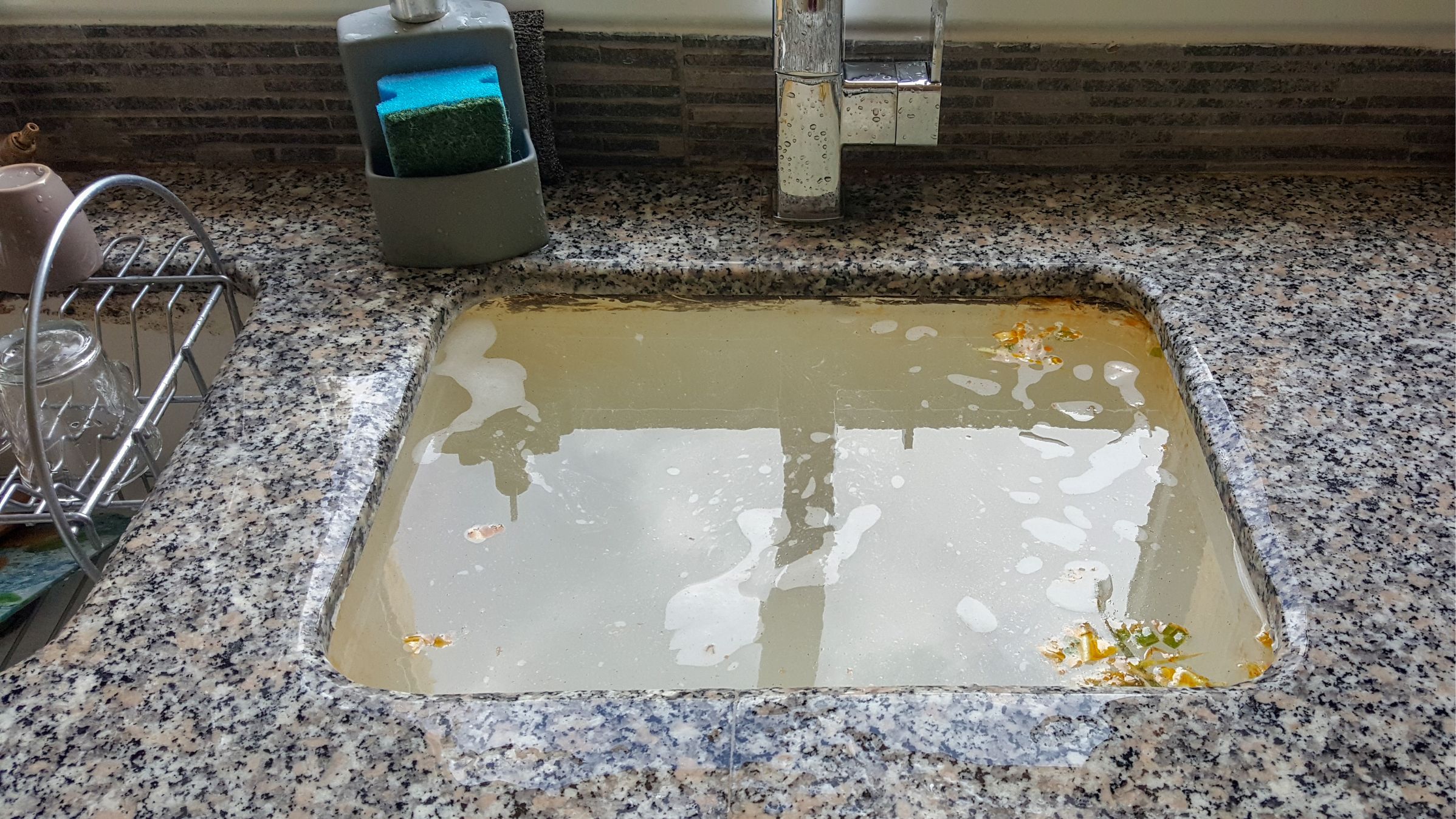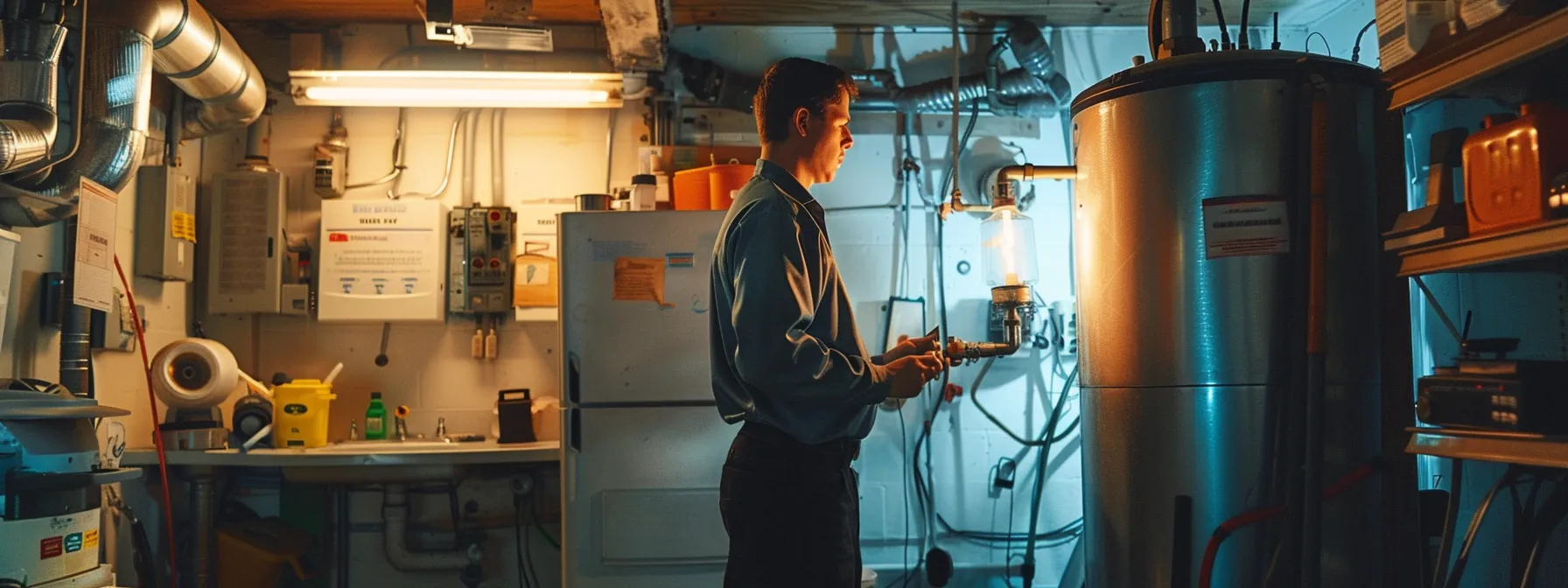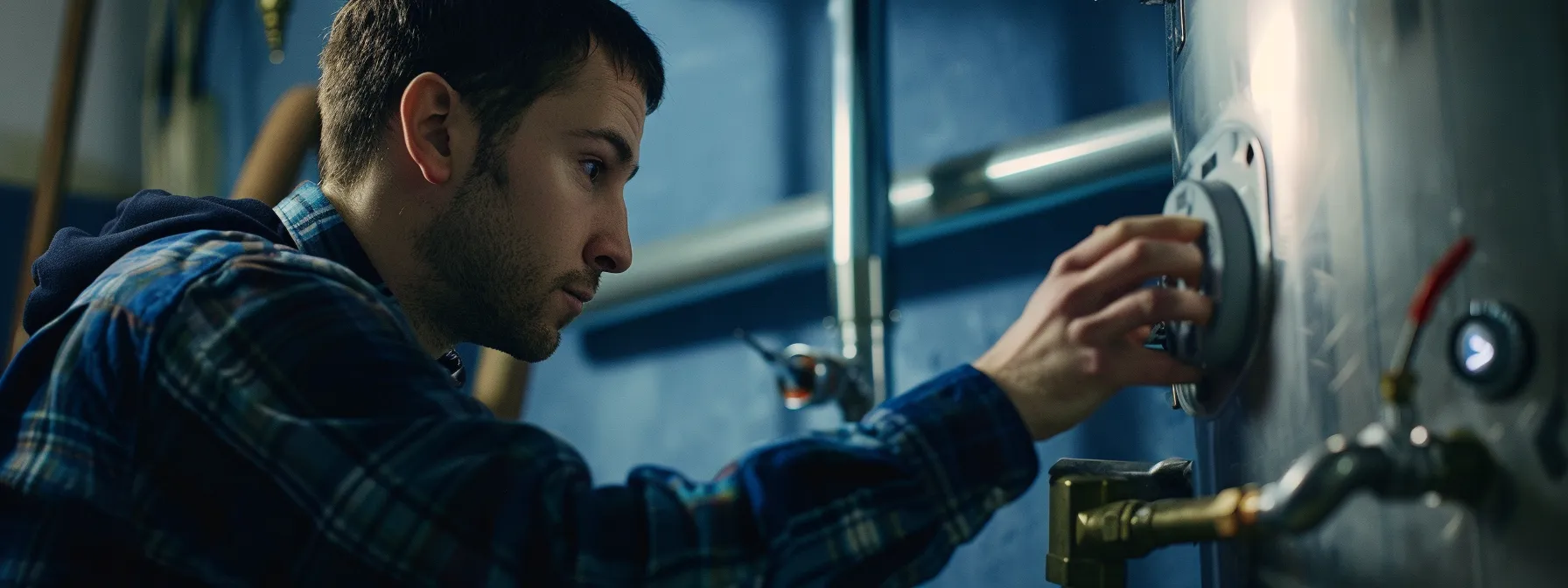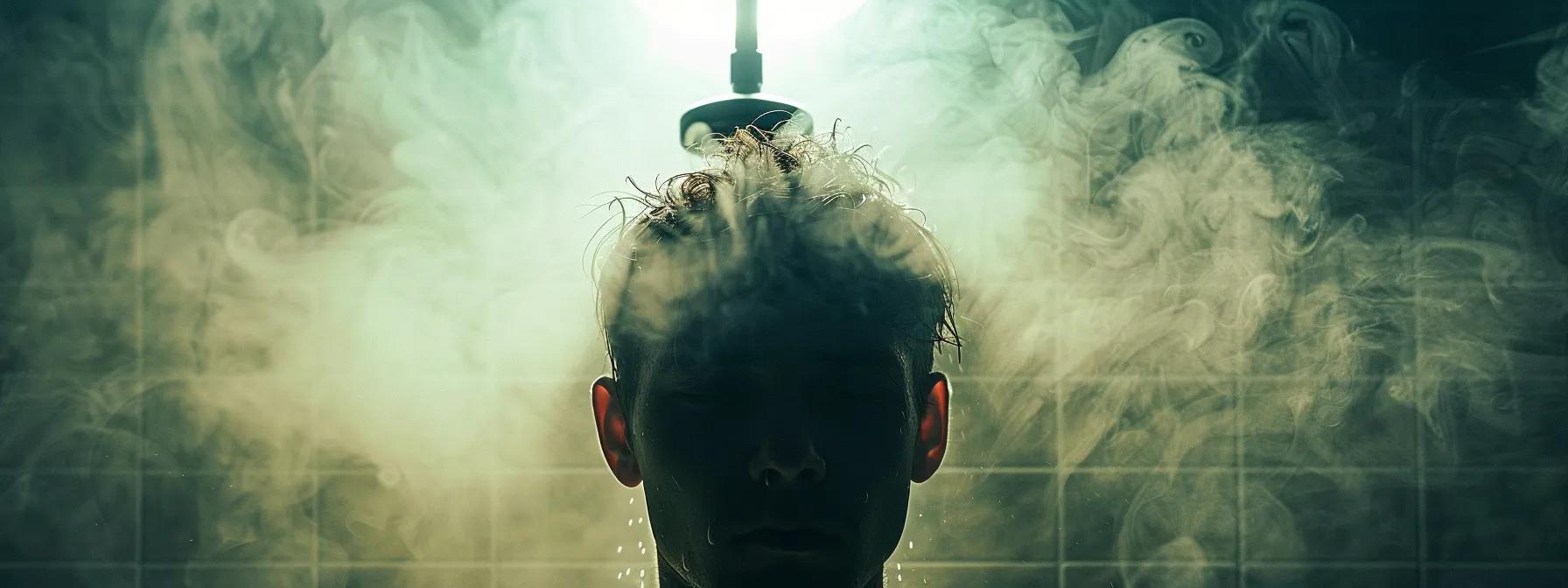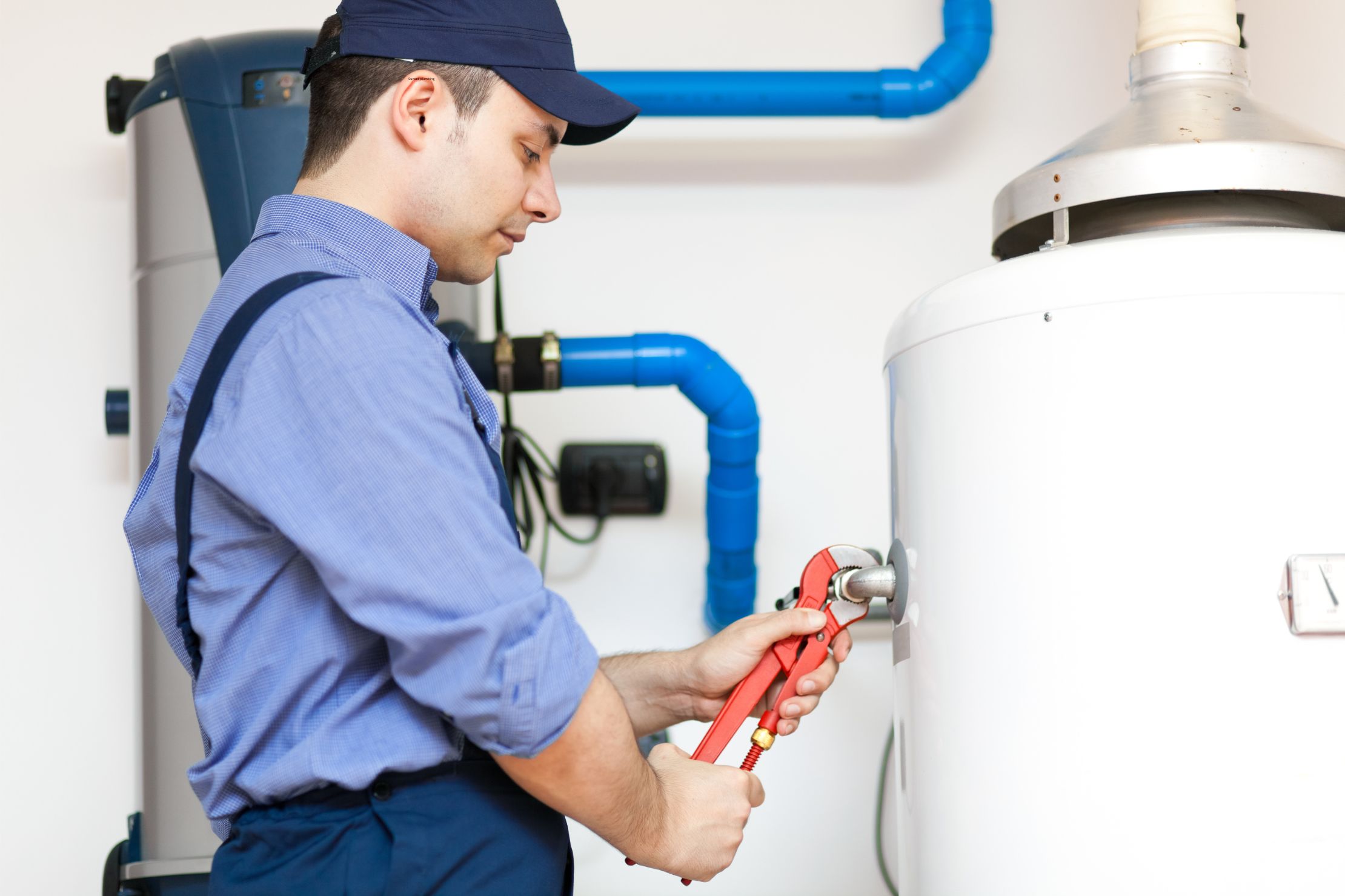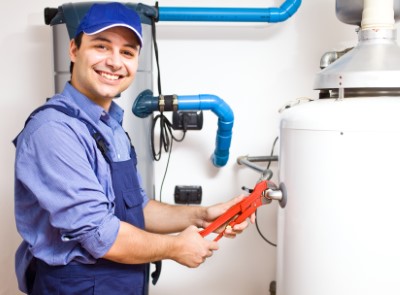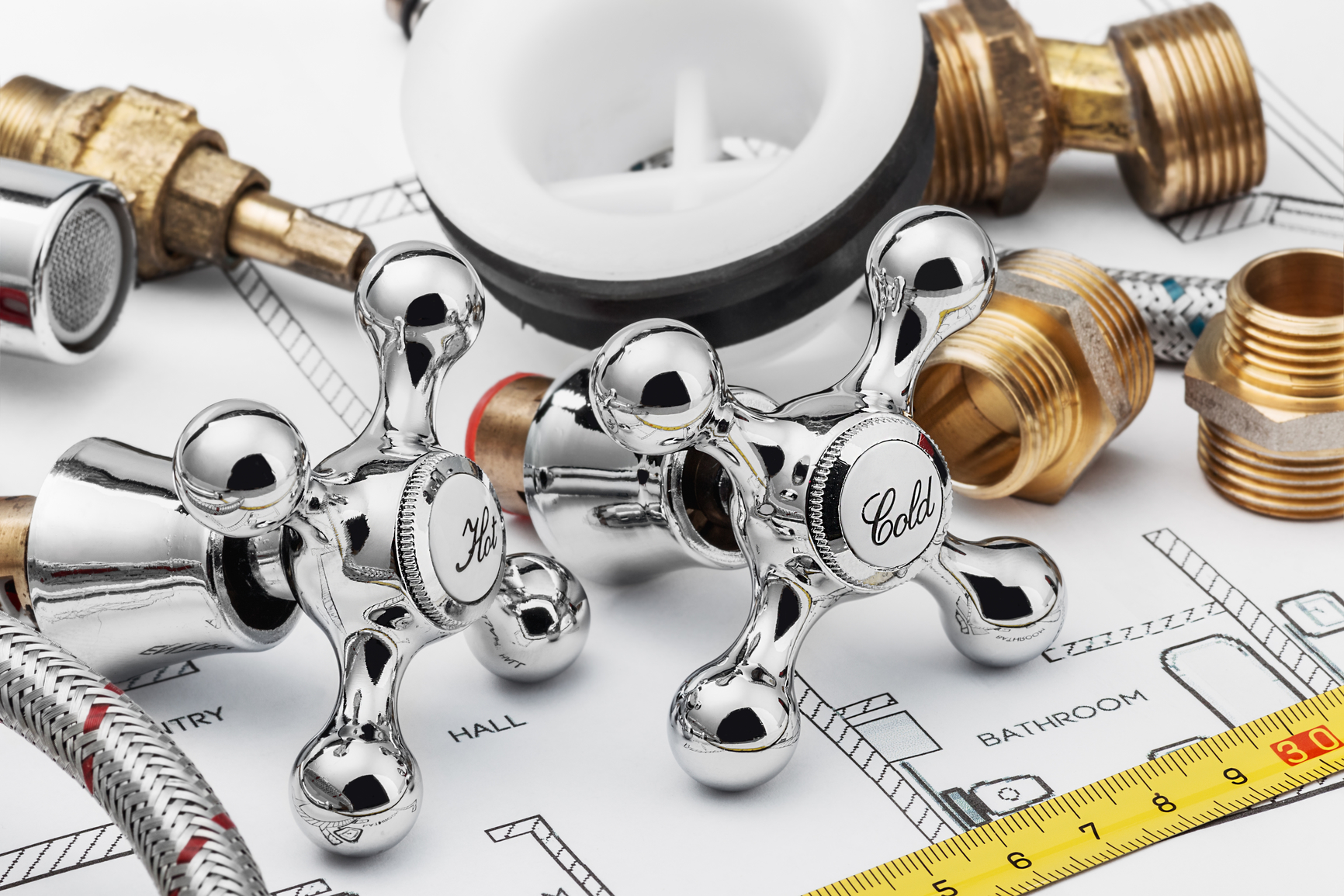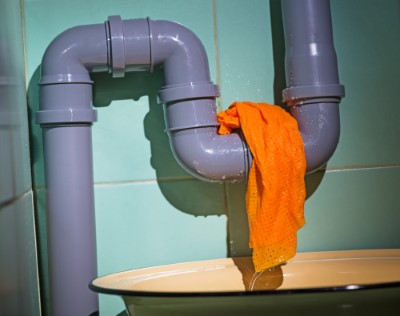Do strange noises from your water heater make you anxious? This common issue can often indicate underlying problems that require attention. In this article, readers will learn about the most frequent water heater noises, how to diagnose their causes, and effective troubleshooting methods. By understanding the meanings behind these sounds, homeowners can address issues like hard water buildup or power supply problems and even recognize when it’s time to reset their unit. Engaging with this content will empower readers to take control of noisy water heaters, improving their home’s comfort and efficiency.
Understanding Common Water Heater Noises
Water heaters often produce various noises that can signal underlying issues. Common sounds include banging, popping, and hissing, which may indicate problems with the heating element or the presence of debris in the water tank. Understanding these noises is crucial for identifying a leaking water heater or a potential water heater leak, enabling timely and effective repairs.
Types of Noises Your Water Heater May Make
Water heaters can produce various noises that may indicate different issues. Common sounds include banging, which often results from sediment buildup and mineral deposits in the tank, and a popping noise that suggests overheating or vapor trapped beneath the sediment layer. Hissing may signal a leak, highlighting the need for prompt leak detection to prevent further damage and ensure the flame operates safely and effectively.
Causes Behind Noisy Water Heaters
Noisy water heaters often stem from specific causes related to the storage tank and its operation. Sediment buildup at the bottom of the tank can lead to banging or popping noises, indicating a need for water heater maintenance to extend the unit’s lifespan. Additionally, any unusual hissing sounds may point to a gas leak, making it essential to check for proper burner function and ensure that warranty terms provide coverage for necessary repairs or replacements.
Diagnosing Strange Water Heater Noises
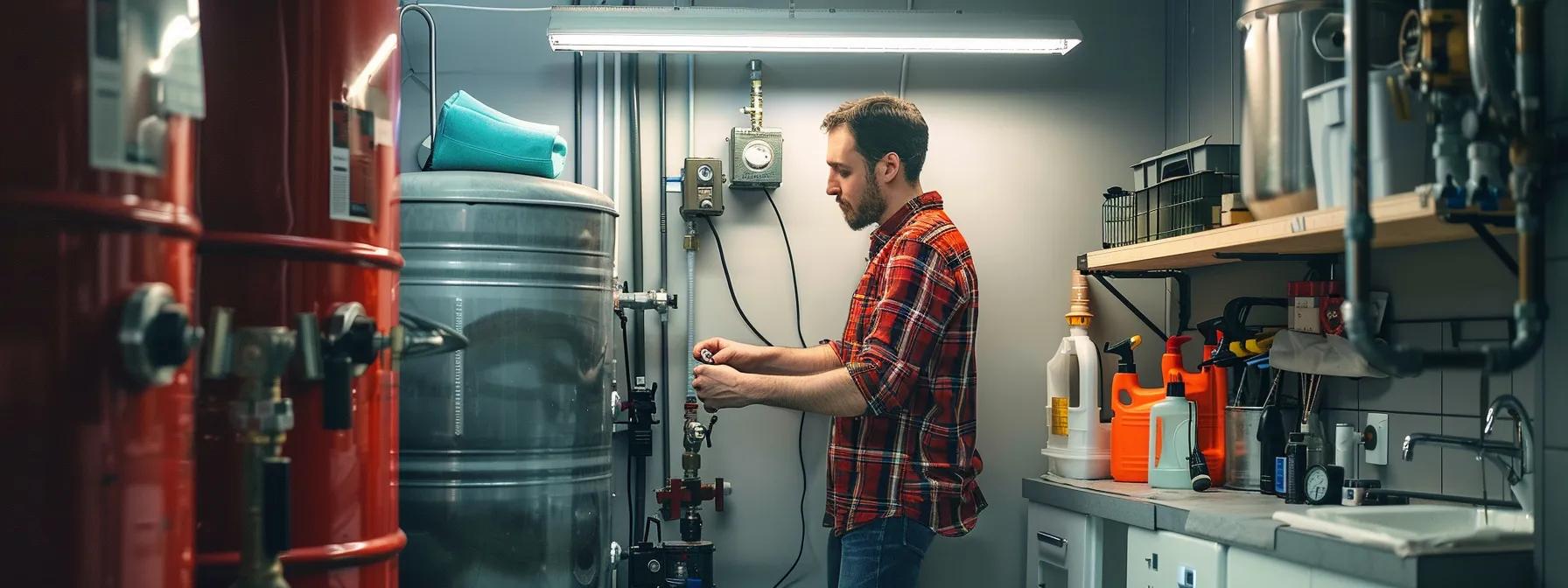
Diagnosing strange noises from a water heater involves listening for specific sounds, which can reveal various potential issues. Identifying whether the noise is a result of sediment buildup, overheating, or even gas leaks is crucial for determining the need for water heater replacement. sunset plumbing of bend offers expert HVAC services to address these concerns, including checks for propane leaks and pipe integrity.
Listening for Specific Sounds
Listening for specific sounds emanating from a water heater can provide crucial insights into its condition. An unusual odor paired with hissing sounds may indicate a problem with the heat exchanger or a gas leak, requiring immediate attention. Additionally, popping noises often result from thermal expansion or sediment buildup, which can compromise the effectiveness of the anode rod in preventing corrosion, highlighting the need for regular maintenance and efficient filtration to ensure optimal performance.
Identifying Potential Issues Based on Noise Type
Identifying potential issues based on noise type from a water heater is essential for ensuring safe operation. For instance, a loud hissing sound may indicate excessive pressure, which can put stress on the relief valve or expansion tank, signaling a need for immediate evaluation. Additionally, if the system operates on natural gas, unusual clicking or popping noises could point to issues with the fuse or the ignition process, highlighting the importance of regular maintenance to prevent serious malfunctions.
Water Heater Noises and Their Meanings
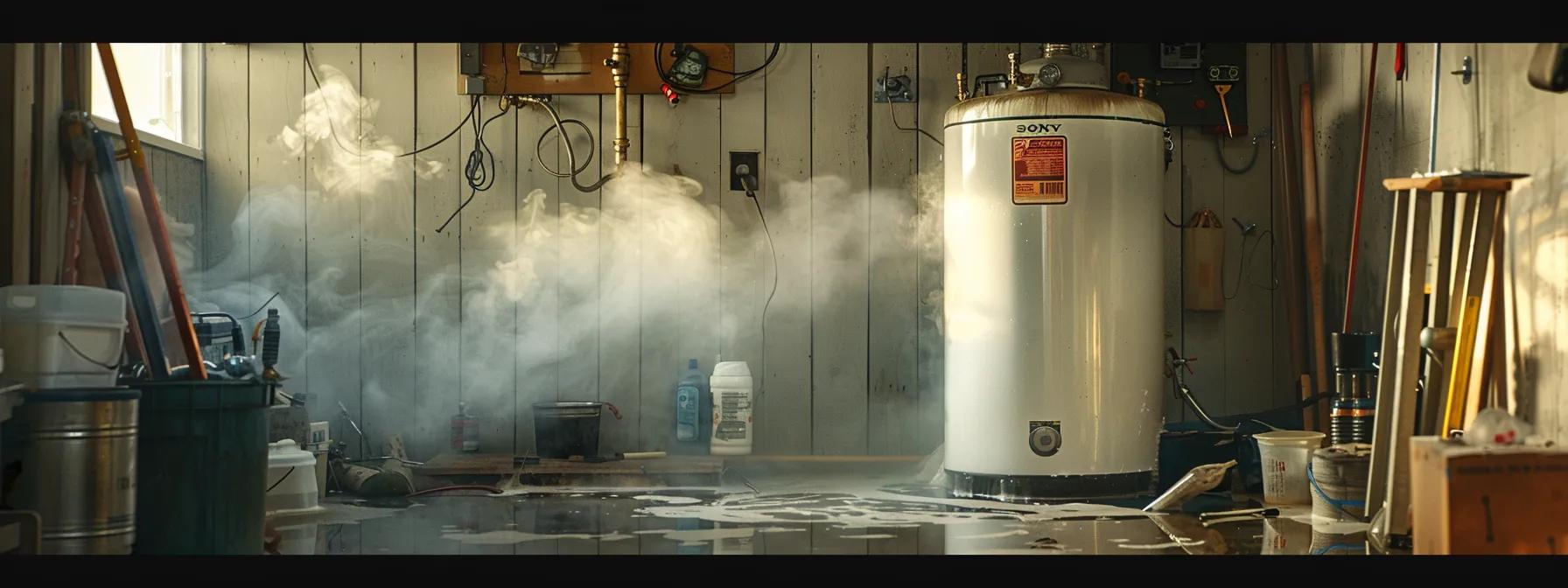
Understanding the meanings behind various water heater noises is essential for addressing potential issues. Rumbling typically indicates sediment buildup, while popping sounds often arise from overheating. Hissing and dripping may signal problems with the thermocouple or gas leaks, whereas squealing and whistling can suggest combustion or pressure-related concerns. These insights help in diagnosing water heater problems effectively.
What Does Rumbling Indicate?
Rumbling noises from a water heater typically indicate sediment buildup at the bottom of the tank. This accumulation can lead to decreased efficiency, reducing the unit’s life expectancy and potentially causing a water heater leaking scenario. Regular water heater repair and maintenance, including flushing the tank and checking the thermostat, can help prevent these issues, ensuring that the system operates safely and effectively.
Understanding Popping Sounds
Popping sounds from a storage water heater often indicate issues related to sediment buildup in the tank, which directly affects water quality and efficiency. As the water supply heats, this sediment can create pockets of vapor that expand and collapse, leading to the disruptive noise. Troubleshooting these sounds typically involves inspecting and draining the tank to remove the sediment, helping to restore optimal function and prevent further complications.
Recognizing Hissing and Dripping Noises
Recognizing hissing and dripping noises from a water heater is essential for effective water heater troubleshooting. Hissing sounds may indicate an issue with the pilot light or the presence of steam escaping from a pressurized area, which could signal a malfunction in the system. Dripping noises often point to leaks, implying the need for immediate inspection to prevent further water heater problems and ensure the boiler functions properly.
Interpreting Squealing and Whistling Sounds
Squealing and whistling sounds from a water heater often indicate issues with airflow or improper voltage. These noises can signal a problem with the HVAC system, particularly if bacteria or sediment buildup is restricting the tank’s intake. Utilizing a multimeter to check the voltage can help assess electrical components and identify potential concerns, ensuring the water heater operates efficiently and safely.
Troubleshooting Noisy Water Heaters
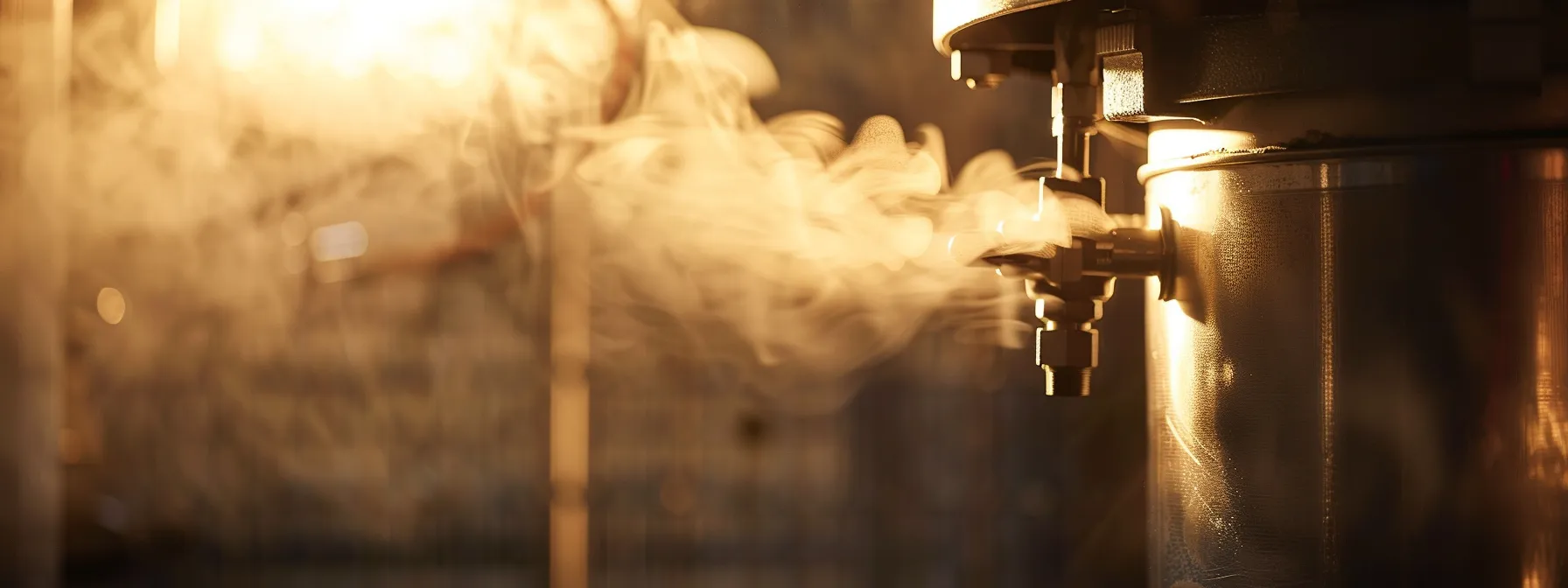
Troubleshooting noisy water heaters involves several key steps to eliminate common noise problems. First, checking the heating element is crucial, as malfunctioning components can lead to unwanted sounds. Next, assessing the pressure relief valve can prevent issues related to excessive pressure in the water heating system. Practical insights into these areas help ensure proper function and reduce the risk of corrosion or other complications.
Steps to Eliminate Common Noise Problems
To eliminate common noise problems in water heaters, one effective approach involves checking the electric heating elements. If these components malfunction, they can create unusual sounds. Additionally, inspecting for signs of condensation around the unit can help identify potential leaks contributing to noise. Ensuring the circuit breaker supplying power is functioning correctly also plays a crucial role in reducing operational issues, thus saving energy and enhancing performance during tasks like showering.
When to Check the Heating Element
Checking the heating element is essential when unusual sounds are present in a water heater. If the unit produces popping or banging noises, it could indicate a malfunctioning heating element, which may also be affected by sediment accumulation. Regular inspection of the water filter is recommended to prevent impurities from entering the tank, ensuring optimal operation and reducing the likelihood of noise-related issues in the future.
Assessing Your Pressure Relief Valve
Assessing the pressure relief valve is essential for maintaining a safe and efficient water heater. This component helps regulate pressure within the system, and any unusual sounds, such as hissing or excessive noise, can indicate a malfunction. Regular checks can prevent issues related to high pressure, which might lead to leaks or further damage, ensuring the water heater operates effectively.
Maintenance Practices to Reduce Noise
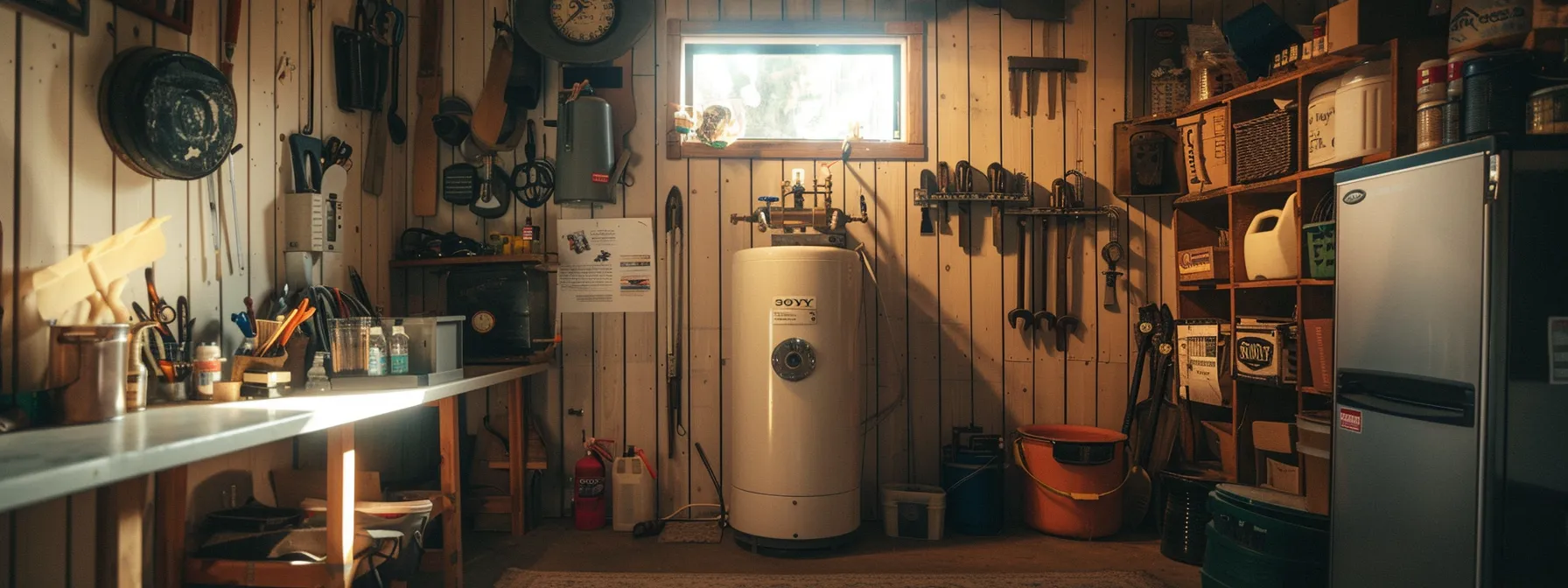
To reduce strange water heater noises, it’s essential to implement effective maintenance practices. Regular flushing of the tank removes sediment buildup, enhancing efficiency and performance. Inspecting the anode rod will help prevent corrosion, while checking for sediment accumulation ensures the unit operates smoothly. Attention to these areas can significantly diminish noise and prolong the water heater’s lifespan.
Regular Flushing of the Tank
Regularly flushing the tank of a water heater is a critical maintenance practice that helps eliminate sediment buildup, a common cause of disruptive noises. By removing these deposits, homeowners can not only enhance the unit’s efficiency but also extend its lifespan. This simple task can be performed annually and serves to maintain optimal performance, ensuring that the water heater operates quietly and effectively.
Inspecting the Anode Rod
Inspecting the anode rod is an essential maintenance practice that can help reduce strange water heater noises and prolong the unit’s lifespan. This component absorbs corrosive elements, preventing rust from forming inside the tank. By checking the anode rod regularly, one can ensure that it remains effective, which not only reduces noise caused by sediment buildup but also enhances the overall efficiency of the water heater.
Checking for Sediment Buildup
Checking for sediment buildup in a water heater is vital for maintaining its efficiency and minimizing noise. Sediment often accumulates at the bottom of the tank, leading to issues like popping or rumbling sounds during operation. Regular inspection and flushing of the tank can remove these deposits, ensuring the water heater runs smoothly and extends its lifespan, ultimately enhancing performance and reducing unnecessary disruptions.
When to Seek Professional Assistance
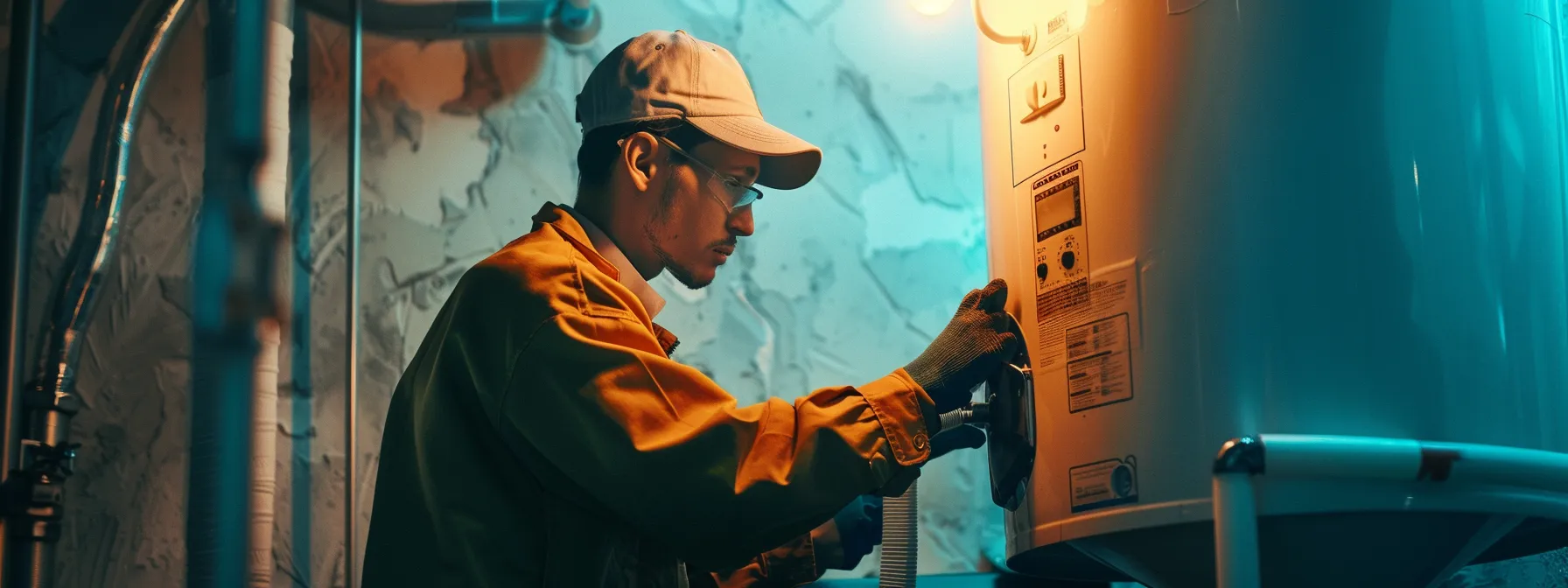
Identifying signs that indicate a serious issue with a water heater is critical for timely repairs. Cost considerations for repairs can vary significantly, making it essential to understand the potential expenses involved. Additionally, knowing how to choose a reliable technician ensures that homeowners receive quality service. Each of these aspects plays a vital role in addressing strange water heater noises effectively.
Signs That Indicate a Serious Issue
Signs that indicate a serious issue with a water heater often include persistent loud noises, such as banging or hissing, which may suggest sediment buildup or even a potential gas leak. Homeowners experiencing a sudden drop in water temperature or irregular pressure fluctuations should seek immediate assistance, as these symptoms can signify underlying problems that could lead to more significant damage. Consulting a professional plumber, such as those from Sunset Plumbing of Bend, can provide the necessary expertise to diagnose and resolve these critical issues effectively.
Cost Considerations for Repairs
When considering repairs for a water heater, understanding the potential costs is essential for homeowners. Repair expenses can vary based on the severity of the issue, the type of water heater, and local labor rates, potentially ranging from simple fixes to more extensive repairs. Engaging with a trusted plumbing professional, like those at Sunset Plumbing of Bend, can provide accurate estimates and ensure that repairs address the underlying problems effectively, safeguarding against future complications and prolonging the unit’s lifespan.
How to Choose a Reliable Technician
Choosing a reliable technician is vital for addressing water heater noises effectively. Homeowners should seek professionals with extensive experience in plumbing and water heater repair to ensure quality service. Checking online reviews, asking for recommendations from friends or family, and confirming that the technician is licensed and insured can significantly enhance the chances of hiring a dependable expert, such as those at Sunset Plumbing of Bend.
Conclusion
Addressing strange water heater noises is essential for maintaining the efficiency and longevity of the unit. Common sounds like banging, popping, and hissing can signal serious issues that require immediate attention to prevent further damage or safety hazards. Regular maintenance, including flushing the tank and inspecting components, ensures optimal performance and reduces noise disruptions. Homeowners should not hesitate to consult professional plumbers to address any persistent issues effectively and safeguard their water heater investment.


